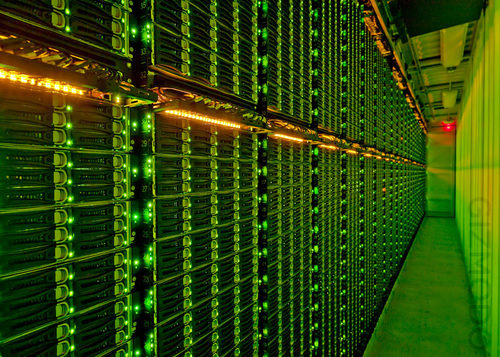
The cloud” isn’t some nebulous thing existing just beyond your computer’s consciousness. As Microsoft showed us, it’s stacks of hard drives packed into shipping containers, parked in secret data centers all around the world. Physically real, but still beautiful.
Microsoft’s cloud capability isn’t just interesting because Ballmer told us it was. It’s the only serious hardware company that also has a serious cloud capability. (Google can’t touch Microsoft’s hardware, and Apple can’t touch either in online services.)
As for these servers, you should get the basic concept: Networked storage with hot-swappable drives. Take that idea, extend it to power and cooling, and multiply it by thousands of drives, and you get what Microsoft is deploying for its cloud services—be it Exchange Server or Bing or Office 2010.
It’s a shipping container that’s a fully self-contained server system. And true to its modular design, it can also be one piece of a larger network of servers, that can be set up anywhere, in a hurry.
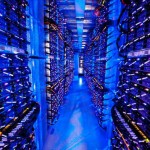
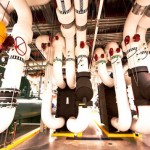
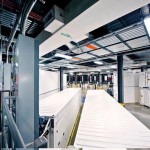
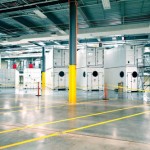
The portability isn’t the only thing that’s relatively new: These systems used to require a fire hose to cool them down, but now they have a garden hose, and the water is only needed when temperature rises above normal operating temperatures.
The data center in Chicago, shown in pictures and video here, went live last summer and when completed will cover 700,000 square feet and demands 30MW of energy; one day demand will reach 60MW. Microsoft is exploring alternatives to power from the grid: A similar data center in Quincy, Washington uses hydro-electric power, 27MW worth. Here’s how the Chicago center was “built”:
Microsoft says it’s got “more than 10 and less than 100 data centers worldwide.” Vague, right? Secrecy is the key to the data game—Google is equally paranoid, maybe more. Microsoft says it’s not about competition, just that the data stored on this stuff has to be kept completely confidential. It’s stated part of Microsoft’s online privacy policy: “We store customer information on computer systems with limited access, which are located in controlled facilities.”
Quite a few controlled facilities, even if Microsoft won’t say exactly how many. What’s sure is that the number is getting bigger. Judging by this viddy, the global deployment process can seem a little like Dr. Evil trying to take over the world, or at least you trying to win a game of Risk.